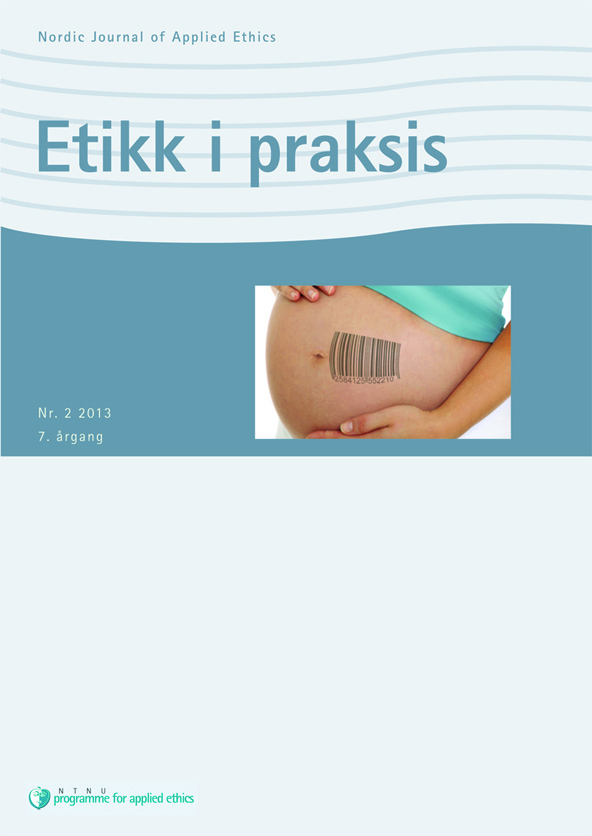Bør man tillate at norske statsborgere benytter seg av surrogati i India?
DOI:
https://doi.org/10.5324/eip.v7i2.1794Emneord (Nøkkelord):
surrogacy, Norway-India, exploitation, autonomy, regulation of the processSammendrag
I Norge er ikke surrogati tillatt, og myndighetene fraråder norske statsborgere å benytte seg av surrogati i utlandet. I denne artikkelen fokuserer vi på kommersiell gestational surrogati og stiller spørsmålet: Bør man tillate at norske statsborgere benytter seg av surrogati i India? De etiske problemstillingene rundt surrogati er mange og sammensatte og blir spesielt utfordrende når tjenesten tilbys i et land med store kulturelle og økonomiske forskjeller både internt og i forhold til Norge. Vi baserer analysen og drøftingen av dette etisk utfordrende spørsmålet på Beauchamps og Childress sin veletablerte metodiske tilnærming innen biomedisinsk etikk. Vi anvender de fire allmennmoralske prinsipper: respekt for autonomi, velgjørenhet, ikke-skade og rettferdighet på sakskomplekset for å synliggjøre spenningene involvert i dette etiske dilemmaet. Med full bevissthet om at det ikke finnes noen lettvinte og omkostningsfrie løsninger på dilemmaer generelt og dette spesielt, konkluderer vi med at interessene til de berørte parter, og spesielt surrogatmødrenes, kan bli bedre ivaretatt om surrogati tillates under omfattende reguleringer. Dersom man velger å gjøre praksisen illegal, vil man også miste mulighetene til å påvirke prosessen og sikre rettighetene til de involverte partene.
Nøkkelord: surrogati, Norge–India, utnyttelse, autonomi, regulering av prosessen
English summary: Should Norwegian citizens be permitted to use surrogacy in India?
Surrogacy is not permitted in Norway, and the government strongly advises against Norwegian citizens travelling abroad to have children through the use of the surrogacy industry. In this article, we focus on commercial gestational surrogacy and debate the question: Should Norwegian citizens be permitted to use surrogacy in India? The ethical concerns regarding surrogacy are complex and are especially challenging when the service is offered in a country with big cultural and economic differences both internal and in comparison to Norway. We base our analysis of this ethical, challenging question on Beauchamp’s and Childress’s well-established approach within biomedical ethics. We apply the four principles of respect for autonomy, beneficence, nonmaleficence and justice to shed light on the conflicts of interests in this ethical dilemma. With full awareness that there are no simple and correct solutions to dilemmas in general and on this issue, especially, our conclusion is that the interests of the involved parties, and especially those of the surrogate mothers, might be better attended to if surrogacy is allowed with extensive regulations. If this practice is made illegal, the opportunity to influence the process and secure the rights of the involved parties is lost.


